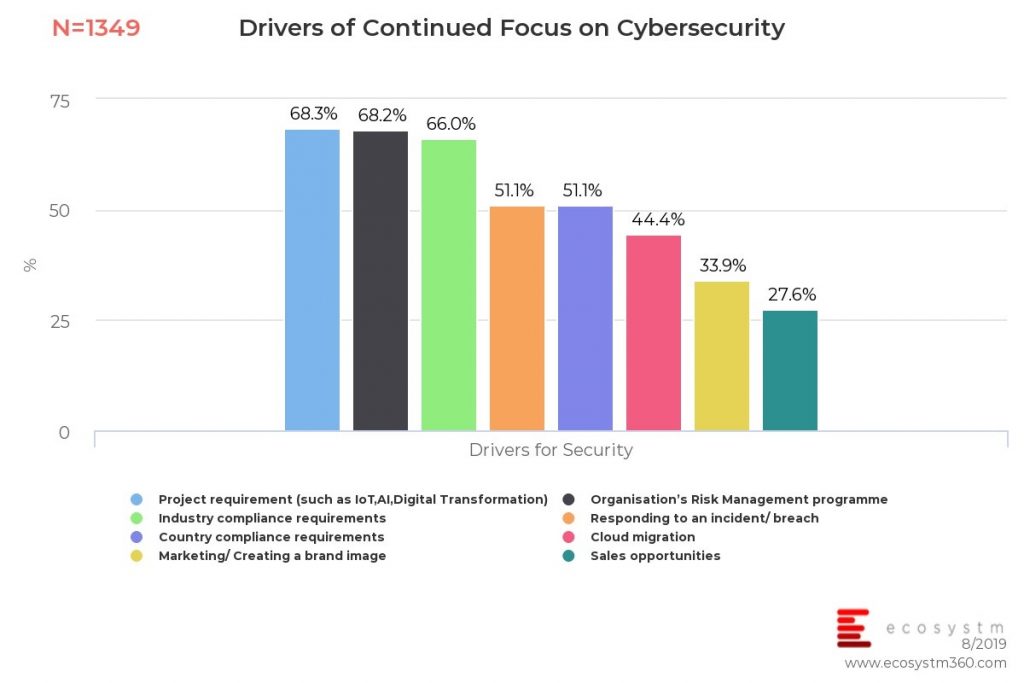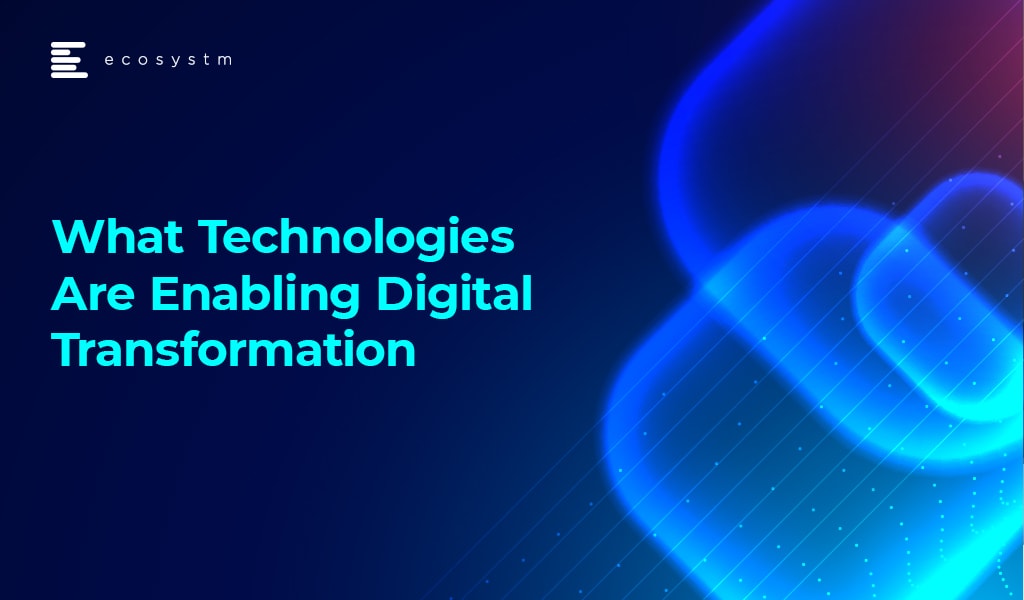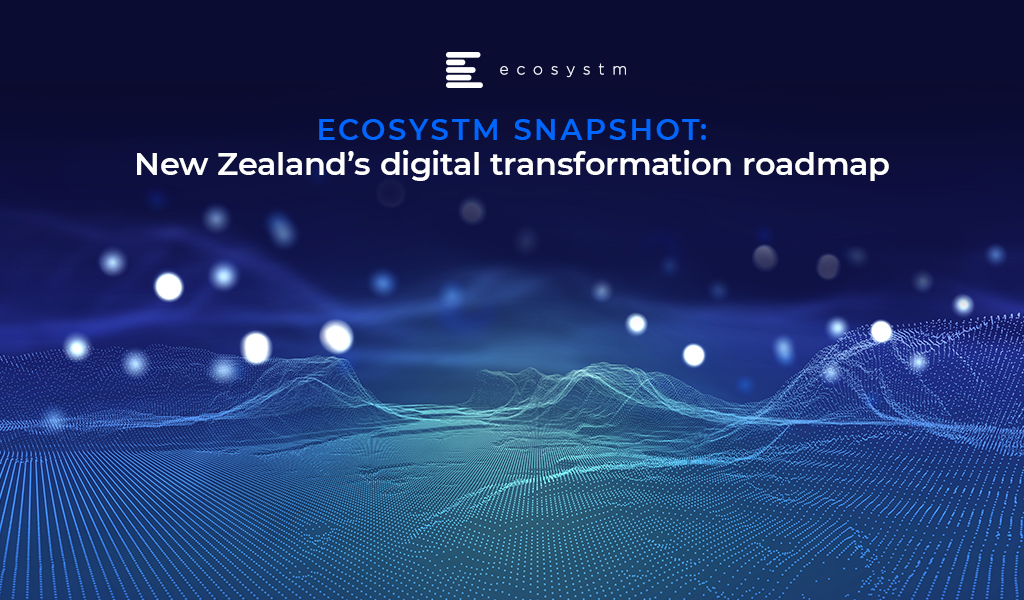In this rapidly evolving world, the adoption of Digital technology is transforming business and organisations through various means. People and organisations are embracing digital technology to build new products and services based on innovative business models and changing nearly every aspect of their business. This shift in technology adoption to support the business is known as Digital Transformation (DX).
Technologies Driving DX
There are several technologies driving the DX revolution. The foremost amongst them is the Internet, which has enhanced communication, connectivity and information sharing capabilities. The ubiquitous adoption of internet by organisations has also created technologies such as Cloud and Internet of Things (IOT), unlocking more ways to deliver and distribute software and services. It has been only a few decades since the Internet expanded from a limited low-bandwidth network with a few computers to the global matrix of high-speed connections that we have today. These technologies are fundamentally changing how businesses operate and deliver value to customers.
Artificial intelligence (AI) is another technology driving DX. AI is creating opportunities in areas such as intelligent systems, speech recognition, machine learning, and robotic process automation (RPA). AI tools and applications require a lot of data to train the algorithms which is leading to the creation of more data collection points by the organisations. The creation and consumption of piles of data, often called ‘Big Data’, is leading businesses to generate better insights, better decisions and support organisational strategy derived by combining this data with AI.
Another area making its way into digital transformation is the adoption of mobile technology, allowing us to be geographically independent. The most common application of mobility is smart phones which has transformed us in many ways. Mobility has brought new applications and services for businesses, driving a whole range of initiatives – often referred to as Workplace Innovation – to improve employee productivity and engagement. Organisations have had to adopt several Mobility solutions, such as Mobile Device Management (MDM), Mobile App Management (MAM) and Enterprise Mobility Management (EMM) – and the trend is to have these solutions consolidated under one Unified Endpoint Management (UEM) solution. The overriding need is offering flexibility and connectivity to the business world for remote workers.
At the enterprise level, corporate data and corporate applications have also become untethered from the physical world. Large scale corporate wide applications (Enterprise Applications/Enterprise Resource Planning (ERP)), services and even infrastructure services are now delivered on the Internet. And the digital world is meeting the physical world – drones are being used for remote applications and autonomous vehicles are becoming a reality. Even governments of several nations are delivering their services digitally and providing access of the government data to businesses to help them develop new information-based services.
These changes are revolutionising businesses and the way we work. Innovative technologies mean fresh opportunities, better business capabilities, lower costs, reduced time and improved customer experience, creating a win-win situation. But sustaining business integrity, data safety and protection of cyber assets is of prime importance and that is where Cybersecurity comes in play.
The global Ecosystm Cybersecurity study finds that DX is the key driver for investments in Cybersecurity solutions.

Cybersecurity encompasses a range of technologies designed to protect endpoints and networks from unwelcome intrusions and to ensure continued reliability. Cyber-attacks have become a major issue and not taking care of security can have large and long-lasting repercussions. A Cybersecurity strategy is becoming a necessity for digital business to protect the infrastructure and data assets.
In these early years of the 21st century we have witnessed a lot of innovations that have transformed how we work and do business. While DX allows process automation, improves accuracy and enhanced applications, there are those that are still sceptical and are concerned about the potential negative disruption to the traditional ways of doing things. The benefits that we are deriving from DX – and those that we will continue to derive – will outweigh the scepticism and positively impact businesses and society, on multiple levels. DX is sweeping the world and the future is here, now.

To drive its digital transformation initiatives, the Government of New Zealand recently published a roadmap ‘Growing innovative industries in New Zealand: From the knowledge wave to the digital age’, which outlines the strategic objectives of the Government to uplift and drive innovation for the country’s industries. The policy is focused on achieving a sustainable and productive economy for the country. The central elements for the plan were developed in consultation with all the key industry players and include the ideas necessary for transitioning the economy.
The Government will primarily focus on four significant sectors for its Industry Transformation Plans: food and beverage, agritech, forestry and wood processing, and digital technologies. For this, the government will work with businesses, workforce, and Māori to determine the best path towards to achieve their goals.
Agritech Industry Transformation Plan
New Zealand’s agritech sector spans across a range of technologies including genetics, information and communications technology, machinery and equipment, including robotics. The government is working with industry body ‘Agritech NZ’ and other relevant entities to draft a strategy and action plan for agritech transformation in New Zealand. The objective is to support production, drive innovation and increase exports for New Zealand’s industry.
Commenting on the NZ’s digital transformation Ecosystm Principal Advisor, New Zealand-based Jannat Maqbool, said “the agriculture sector needs to focus on innovation in order to compete and thrive as global trends and consumer demand presents challenges in feeding the growing global population. Investment in programmes driving investment in technologies and related initiatives to boost innovation and productivity in the sector will support the growing Agritech sector including work to scale Agritech businesses internationally.”
Digital technology opportunities
To support the ongoing development of New Zealand’s technology and industrial sector, the NZ government is taking several actions. The government has plans for more coordinated action between industry and the Government. Including:
- Continuing work with the IoT Alliance and the AI Forum to drive applications of digital technologies;
- Implementing Industry 4.0 programmes to increase uptake technologies and processes across manufacturing sectors, improving productivity and competitiveness;
- Coordinating, developing and rolling out a National Digital Infrastructure Model to generate value from data for all aspects of the economy–e.g. infrastructure management and development;
- Supporting New Zealand digital technology firms by providing a level playing field for New Zealand firms to compete for government business;
- Working through the Digital Skills Forum to ensure the digital technology sector, and the industries that rely on digital technology workers, can access the tech talent needed to support the growth of these sectors and the economy.
With Government setting itself for the fourth industrial revolution, there will be certain challenges and opportunities in the implementation, “the opportunity is for increased productivity and to focus more on value add to compete internationally whereas a key challenge will be finding the skilled employees that will be required as industry 4.0 is adopted” said Maqbool.
Journey of NZ industries for digital transformation
SMEs make up over 97 percent of enterprises in New Zealand and digital transformation presents an opportunity for accelerated growth and competitiveness, potentially contributing US$7 billion to New Zealand’s GDP. “Digital transformation requires awareness, adoption and effective change management but before all of this there needs to be a shift in mindset of those in charge or a changing of the guard so to speak to understand and appreciate that the move is necessary, not only for the business itself but for bridging the digital skills gap and supporting a region’s productivity and economic growth ” said Maqbool.
The Government has also created plans for tourism, creative industries, aerospace, renewable energy and health technologies for the digital push. These advances will facilitate the development of new industries in New Zealand.
“It essential that efforts through government initiatives align with other approaches already driving the move to digital in order to ensure available resources are effectively utilised and for ongoing sustainability,” says Maqbool.



